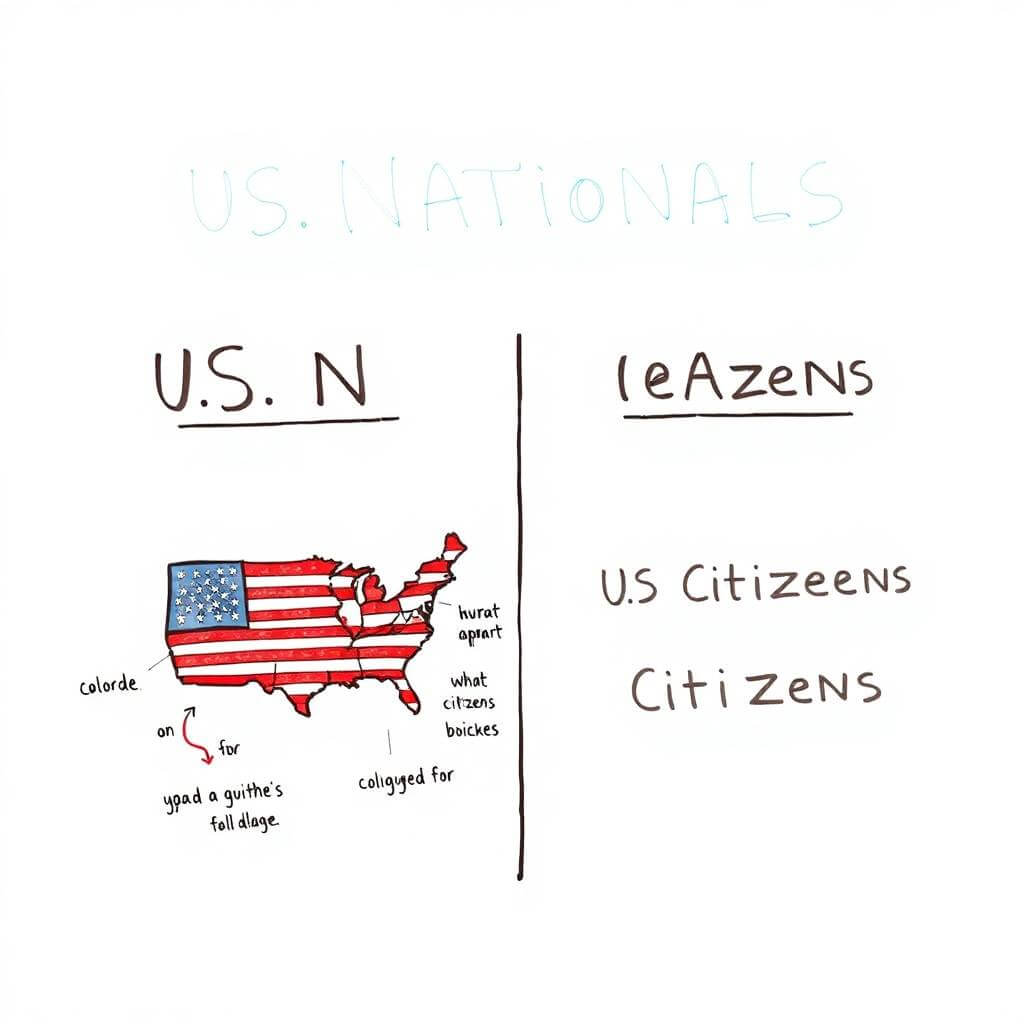
U.S. citizens are automatically U.S. nationals, but not all U.S. nationals are citizens. What does this mean for those who are nationals but not citizens, especially when they wish to travel or live in the United States?
The distinction impacts rights and privileges, such as voting and office eligibility. Interested in how U.S. nationals can become citizens? There's a process involving residency, tests, and an oath that unlocks these rights. Curious about what this involves?
Clarifying U.S. National Status: Who Are They?
U.S. nationals typically include individuals born in territories that are not fully incorporated U.S. states but are still under U.S. sovereignty. This group primarily consists of people from American Samoa and Swains Island. While these territories are protected by the U.S. government, their inhabitants do not possess all the rights granted to U.S. state residents.
You could also be a U.S. national without being a U.S. citizen if both of your parents were born in American Samoa or Swains Island and resided in the U.S. prior to your birth. Interestingly, your birthplace doesn’t necessarily have to be American Samoa or Swains Island to qualify as a U.S. national.
In certain circumstances, being a U.S. national might apply even if only one of your parents was born in these territories, provided they meet certain U.S. residency requirements. Additionally, older individuals born in Guam or the Philippines under specific conditions might also be recognized as U.S. nationals. Those born in Guam before 1950 or in the Philippines before 1946 are included in this category.
Key Differences Between U.S. Citizens and Nationals
The primary distinctions between U.S. citizens and nationals lie in civic participation and government service. U.S. nationals cannot vote in federal elections or hold federal public office; these rights are reserved for citizens. Nationals must undergo naturalization to gain these rights.
Despite these differences, U.S. nationals share many privileges with citizens. They can obtain a U.S. passport, receive protection from U.S. consular offices while abroad, and have the freedom to travel, reside, and work within the United States.
Additionally, the rights associated with being a U.S. national are more secure than those provided to green card holders. One advantage of having U.S. national status is that it cannot be revoked, unlike a green card, which means that individuals cannot be legally deported back to their home country. This permanence provides a significant level of security to nationals living in the U.S.
Pathway to Citizenship for U.S. Nationals
As a U.S. national, the route to becoming a naturalized U.S. citizen is more streamlined compared to that for foreign nationals. Typically, foreign nationals must reside in the U.S. with a green card for three to five years before they are eligible to apply for citizenship. U.S. nationals, on the other hand, are only required to meet a three-month residency requirement before beginning the naturalization process.
Here are the steps a U.S. national would follow to become a U.S. citizen after residing in the U.S. for at least three months:
- Fill out and submit the USCIS Form N-400, Application for Naturalization, and pay any necessary fees.
- Attend the scheduled naturalization interview.
- Pass both the civics and English language proficiency tests.
- Undergo a biometrics screening to confirm your identity.
- Participate in the citizenship ceremony and swear the Oath of Allegiance to the United States.
While remaining a U.S. national offers nearly all the privileges of a citizen, including the right to work and live in the U.S. without restrictions, becoming a citizen is essential for those who wish to vote or hold public office. Thus, naturalization is an important step for U.S. nationals who seek to engage fully in the nation's civic life.
In the end, even though U.S. nationals have many of the same rights as citizens, obtaining full civic participation through naturalization allows for the pursuit of public office and voting—two essential characteristics of democratic engagement. If you're a U.S. national considering this path, taking the steps to become a U.S. citizen can deepen your connection and contribution to the country.

